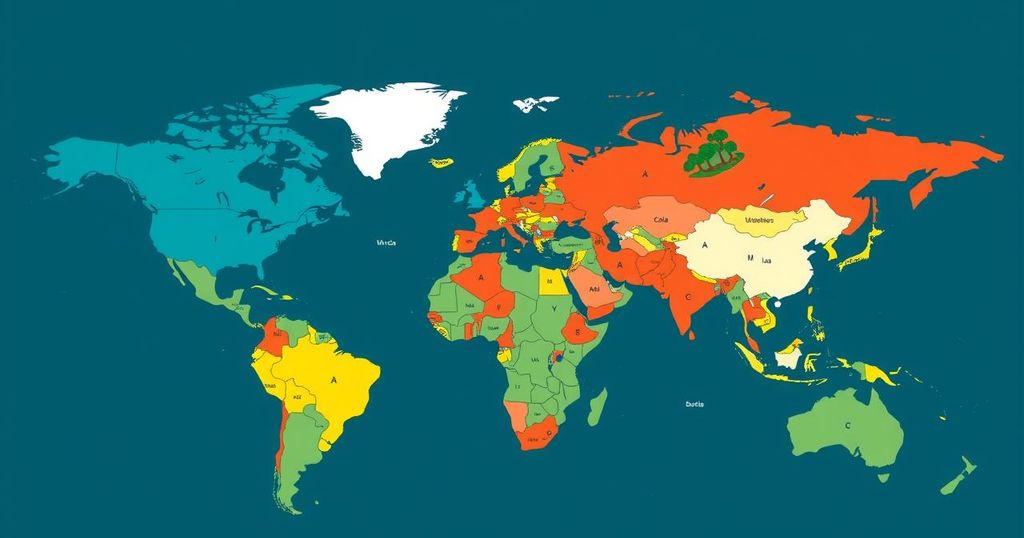Wealthy nations are initiating landmark compensatory measures aimed at supporting poorer countries facing climate change impacts. Affected individuals, like Christopher Bingala from Malawi, are receiving critical payments, marking a significant step toward establishing a formal ‘loss and damage’ fund. As negotiations progress at COP29, the need for additional funds becomes increasingly evident, as experts predict financial requirements may reach $250 billion annually by 2030.
Recent developments illustrate how wealthier nations are starting to provide financial compensation to poorer countries impacted by climate change. An emblematic case is that of Christopher Bingala, a subsistence farmer in Malawi, who lost his home and livestock due to Cyclone Freddy, the longest-lasting tropical cyclone on record. Following this disaster, he received a payment of approximately $750, enabling him to rebuild his home and stabilize his family’s living situation. This compensation represents one of the first instances of ‘loss and damage’ funding, a critical initiative aimed at assisting low-income countries that disproportionately bear the consequences of climate-induced disasters despite minimal contributions to global pollution levels.
As negotiations unfold at the COP29 climate summit in Azerbaijan, discussions continue regarding the total financial obligations owed to developing nations as part of a broader climate finance strategy. This includes not only grants for immediate disaster recovery but potentially long-term investments to mitigate future risks. Countries like the United States, the European Union, and the United Arab Emirates have collectively pledged about $720 million thus far; however, experts warn these funds may prove insufficient in response to worsening climate-related events.
The program in Malawi serves as a pilot for a larger framework designed to tackle loss and damage issues globally. With statistics indicating sophisticated modeling suggests the need for loss and damage funding could rise to $250 billion per year by 2030, the urgency for an effective and sustainable fund is clear. Additionally, the Prime Minister of the Commonwealth of the Bahamas, Philip Davis, emphasizes the importance of global responsibility for emissions that catalyze climate change, calling for wealthier nations to acknowledge their role in the crisis brought upon developing countries.
The topic revolves around the emerging climate finance initiatives aimed at supporting poorer nations significantly impacted by climate change while contributing little to its causation. The concept of ‘loss and damage’ emerged as a response to the alarming frequency and intensity of climate-related disasters, which have necessitated urgent financial aid for affected communities and countries. Wealthy nations are being prompted to contribute to a fund specifically allocated for these damages, as discussions progress at international climate summits. The situation highlights the stark disparity between those who contribute to climate change and those who endure its consequences, raising ethical and economic stakes in international negotiations.
Richer countries are beginning to acknowledge their financial obligations to aid poorer nations facing the adverse effects of climate change. As evidenced by the case of Christopher Bingala in Malawi, direct compensation can provide essential support for rebuilding lives and homes. However, the initially pledged $720 million may not suffice in addressing the growing financial demands and severe impacts projected by climate change. Ultimately, a cohesive and well-structured loss and damage funding mechanism is urgently required.
Original Source: www.kanw.com






